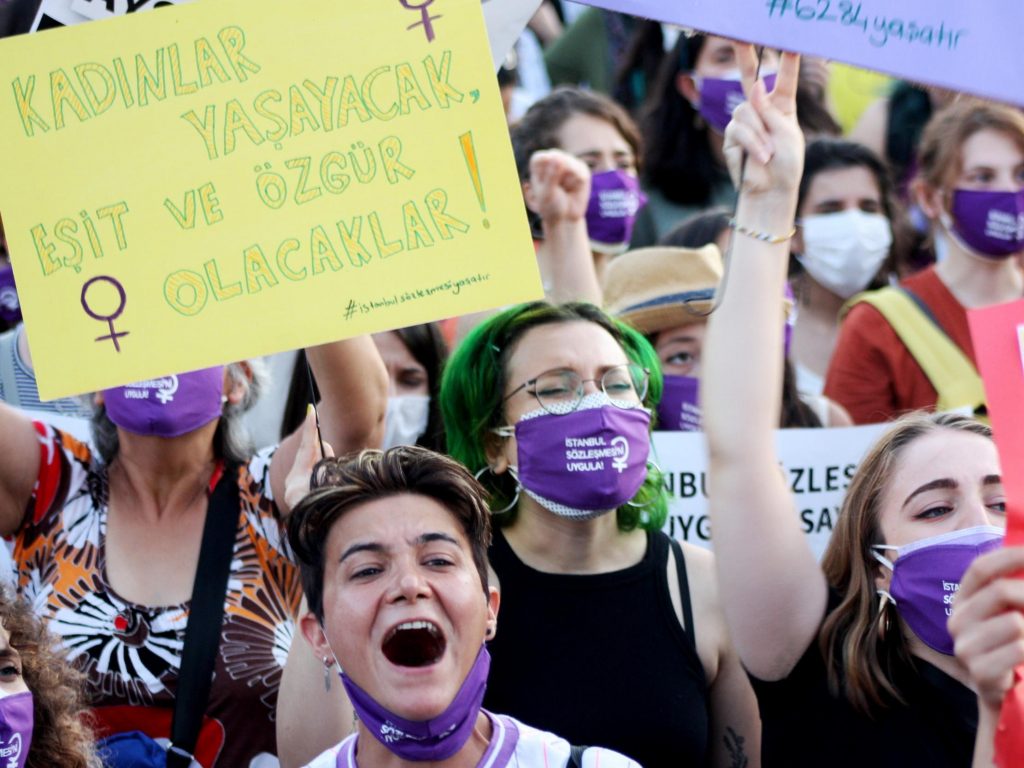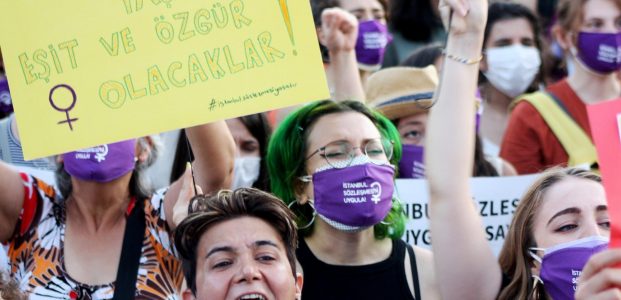#ChallengeAccepted has taken Instagram by storm over the past few weeks. Women are posting black and white selfies paired with the hashtag as a means of showing solidarity with thousands of women across the world, but the actual meaning behind it has been lost.
It began in mid-July, when Turkish woman Pınar Gültekin was brutally murdered by an ex-partner, thousands of Turkish women took to the streets to protest the femicide that is overlooked by the government and police. Turkey has the highest rate of femicide among the top 34 OECD countries, and the government is pushing to remove the Istanbul Convention which protects and brings justice to victims of gender-based violence. Among the protests, Turkish women are posting black and white selfies with the hashtag #istanbulsözleşmesiyaşatır, which translates to “Istanbul Convention Saves Lives”, as well as #ChallengeAccepted. The selfies represent the faces of victims of femicide, which appear in this style in Turkish newspapers and television and to demonstrate that every woman is at risk of becoming a victim, due to their gender. Internationally however, the movement is on a different trajectory.

Back in 2016, a similar movement was used to raise awareness for cancer, although the campaign was highly critiqued by cancer survivors as being false activism. This year, #ChallengeAccepted has become a flavour of the month paired with #WomenSupportingWomen, many celebrities such as Khloe Kardashian, Kerry Washington and Paris Hilton joined in on posting and the movement rapidly went viral following the growing popularity of the posts in Turkey. The movement has been largely criticised for having such a vague message of “empowering women” and distracting people from the initial campaign. This has also lead to a widespread shaming of women who have participated in posting ignorantly, which only divides women further and negates the “supportive” nature of movement. What’s worse is that many companies have manipulated the hashtag to promote products such as makeup and fashion labels which only serves their own economic interests and ignores the movement entirely.

Using social media, it’s easy to get swept up in trends and online movements without understanding the stories behind them. Hana Muslic talks about “slacktivism”, the ability to support a cause by simple actions such as signing a petition or sharing a post on your Instagram story. Sometimes slacktivism works really well, it’s easy to engage with, non-committal and at the very least, gets people talking about the issue at hand. However, the danger of slacktivism is that people often feel they have done their part by doing something so small, and then forget about the problem after a short period of time. The #ChallengeAccepted movement has engaged with literally hundreds of thousands of people across the world, and has the power to raise awareness about issues such as femicide in Turkey. The most important takeaway from this whole saga is to understand what you’re posting online and be able to explain your actions to others, all in the hope of genuinely educating those around to you.

